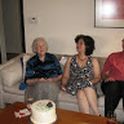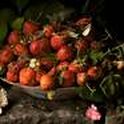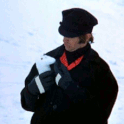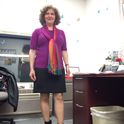Italian forefathers and mothers
There are so! many! people who have shaped Italian cuisines, but I'm wondering who you think of as influential people in Italian cooking (besides Marcella and Lidia...). In addition, what are the recipes that you find synonymous with them? The people my nonna talks about as beloved Italian cookbook writers are not the ones I might name, and I'm curious to learn more about all the people who've brought Italian cooking to us. Thank you in advance.
21 Comments
Thomas Jefferson, both at the White House and Monticello
Waverly Root, Food of Italy...wide ranging intro to Americans
Elizabeth David, Italian Cooking...ditto for Britains
Anna del Conte, Italian Pantry,
Jack Denton Scott, Complete Book of Pasta (there is more than spaghetti and macaroni?)
Maria Pace, Little Italy Cookbook (recipes that were made both at home and in Italian immigrant restaurants)
Esther Aresty, The Delectable Past (culling of anecdotes & recipes from historical cookbooks. Here, useful for Apicius & ancient Roman cooking).
Angelo Pellegrino, Unpredjudice Palate (Tuscan immigrant to USA, whose day job was as university professor)
The Gallo brothers (reviled as they were), for restoring vineyards and the place of wine at table
Robert Mondavi and his family, ditto
I've had these crostini many times in many bars/caffès/etc. in Florence and the Artusi version is authentic, the benchmark recipe because of its legacy 125 year old status.
Emiko Davies has posted her own glammed up version of crostini here at Food52, but I prefer the plain rusticity of the Artusi version.
Here's the Artusi version both in the original Italian (not paraphrased) and English translation versions:
http://www.italymagazine.com/featured-story/italy-celebrates-gastronome-pellegrino-artusi
As for the Gossetti della Salda book, it is a unique and massive cookbook (2161 recipes + 13 base recipes).
There are two indexes. The first has a primary grouping by region, then by course, and finally concluding with lists of typical regional wines (DOC, DOS, and other notable non-denominazione wines).
The second index ("Indice analitico") is by course: antipasti, pizza, etc. The dishes are alphabetically listed along with region, recipe number, and page number.
Cookbooks that highlight regional cuisine are pretty rare. Another one is Diana Kennedy's "The Essential Cuisines of Mexico" but her book is grouped by course so you might find tacos from the Yucatan Peninsula next to tacos from Nayarit.
The Gossetti della Salda book is brilliant because each chapter is regional starting with Piemonte & Val d'Aosta working all the way down the Italian "boot" to Sicily, and ending up in Sardegna. Because of this grouping, just perusing the recipes (or the first index) feels like a culinary roadtrip down the Italian peninsula. This is really why I consider this the most enjoyable cookbook on my shelves to peruse.
Each regional chapter has a hand-drawn map of Italy and the featured region prominently highlighted. As mentioned before, within each regional chapter, the recipes are grouped by course and many of the dishes are attributed to a single town ("specialità di Grosseto").
Many of the recipes have notes and/or variants that suggest ingredient substitutions or how another nearby family or town would prepare the dish. Sometimes she calls out a similar dish in a different region (Tuscany's "pan molle"/"panzanella" is similar to Lazio's "panzanella" that has the same name.)
The notes sometimes include observations on how modern versions of the dish are prepared or how seasonality of a certain ingredient will require the cook to change the procedure. From time to time, you'll find a note -- particularly in desserts -- that the dish in question is made on a specific day (like the town's specific saint's feast).
The fact that she mentions modern interpretations means that many of these recipes are legacy: probably late nineteenth century,
The book itself has a unique aesthetic: cream-color paper and ink drawings, often more thematic (like a lamb for a recipe that uses lamb) than illustrative. The effect is timeless.
I love Your Guardian Chef's children's cookbook suggestion! I learned to bake as a kid (something I no longer do as I lost my sweet tooth as a young adult) but yes, children should learn to become comfortable in the kitchen. I do remember going to a cooking class as a pre-schooler or kindergartener though.
Only I'm going to have to invite some friends to help me eat it all...
I suggest you contact some Italian chefs. Professional cooks often are influenced by different cookbook authors (often other professional chefs) than your typical home cook.
Ada Boni
There might be other Italian cookbooks that focused on other regions, but the Artusi tome is by far the best known.
Ada Boni was a magazine publisher who published the classic "Il talismano della felicità" in 1929. By the post-WWI era, Italian unification was more widely accepted and with industrialization ingredients were moving freely between the various regions. The Talisman is basically their version of the Joy of Cooking. Again, rather unusually, its audience was housewives.
The third great Italian cookbook is the post-WWII "Il cucchiaio d'argento" (The Silver Spoon) which was published in 1950 by Domus, a design & architecture magazine. There was no single author.
Another great post-WWII cookbook is "Le ricette regionali italiane" by Anna Gosetti della Salda, published in 1967. It's pretty neat in the way that it covers different regions and many recipes have notes about how the dish might vary from one town to its neighbors. This cookbook is not known to American cooks since it was never translated into English.
You can read more about the latter book in this 2006 FoodArts article:
http://www.foodarts.com/news/features/1029/the-italian-cookbook
It's definitely the most delightful Italian cookbook I own with its regional approach.
I'm old. ;-)
I have been cooking for a long time and have a bunch of stamps in several passports. I have to look up certain details like publication dates, but the general knowledge is there. Concerning this thread, I've spend a fair amount of time in Italy: both for language school and vacation over the years and it's a country I greatly enjoy. Why did I select those four books? Because I've been there and talked with people. They mentioned those books and I remembered. A couple of them I own (Artusi and the Gossetti della Salda book).
Of course, food is tied to its people, the region and thus other aspects of culture: war, commerce, history, geography, climate, architecture, music, etc. You might find certain unusual spices in Venetian cuisine because of the city's importance in spice trading. That's a fairly unique situation.
If you want to really understand food you have to have a global worldview, not just understanding where borders lie today, but also knowing some of the history of the world and its people, sort of a holistic vision of what food is.
I have other non-food interests, however much of it ties together. The cooler climate of northern Italy is more suited for cows, so much of the cuisine from that area uses cream and butter. But that cooler climate also means that it snows more in the winter, hence the architecture (steep roofs) is different. That's just one example.
If you just read recipes, you won't get the bigger picture. A recipe is a suggestion (often from one person) using ingredients available to him/her at the time the recipe was written. It's a snapshot of one person's kitchen at one moment.
I would say that world travel is essential in understanding and appreciating how others live. You can read all the books in the world, watch all the videos, however I find that I benefit from seeing other people in other places.






